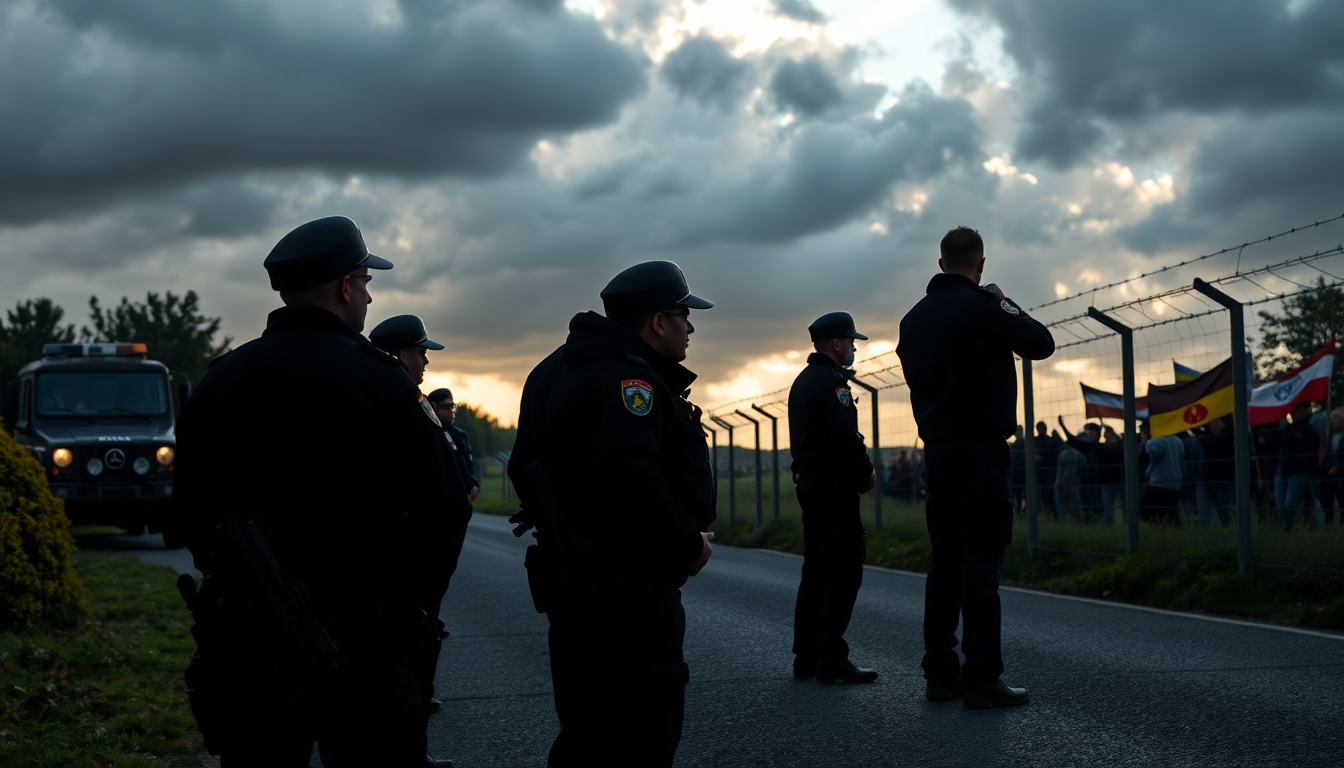Table of Contents
In today’s fast-changing political scene, Polish Prime Minister Donald Tusk finds himself grappling with the complexities of border control amid a crisis that’s heating up on both the frontier with Germany and within his own ruling coalition. Recently, a wave of nationalist vigilantes has emerged, claiming to protect the border, pushing Tusk to firmly denounce their actions as illegal and disruptive. This situation not only reignites debates about immigration and border security but also highlights the vulnerabilities within Tusk’s centrist alliance, which is feeling the strain after a recent electoral setback.
Border Tensions and Government Action
The backdrop of this scenario is the Polish government’s decision to reintroduce border checks with Germany and Lithuania, a measure that took effect on July 7. This move came in response to unverified reports of a rise in migrants being sent back by German authorities. By reinstating these checks, Tusk’s administration aims to assert its control and showcase its strength against the perceived threats posed by illegal immigration.
However, the emergence of self-styled “citizen patrols” on the Polish side of the border adds another layer of complexity. Reports suggest that these groups, numbering in the hundreds, have taken it upon themselves to prevent migrants from returning, claiming to act in defense of national integrity. This has sparked strong reactions from the government, emphasizing that only the Border Guard has the authority to manage border security. Government spokesperson Adam Szłapka’s warning that impersonating law enforcement will have consequences illustrates how seriously Tusk’s administration is taking these developments.
Amid rising tensions, videos have surfaced online showing masked individuals stopping vehicles and demanding identification, raising alarm about public safety and the potential legal repercussions of impersonating authority. Tusk’s condemnation of political figures backing these patrols highlights the growing rift within Polish politics, as he describes their actions as “shameful and scandalous.”
Internal Coalition Dynamics and Political Implications
As Tusk confronts external pressures, the internal dynamics of his governing coalition are equally fraught. Following a lackluster presidential election where his endorsed candidate was defeated by the nationalist-backed Karol Nawrocki, Tusk’s coalition has already experienced a significant shake-up. This loss has not only shaken the foundation of his government but also encouraged coalition partners to reconsider their alliances, creating a climate of political uncertainty.
The recent meeting between junior coalition partners and opposition members, including notable figures from the Law and Justice party, hints at a potential fracture in loyalty within Tusk’s ranks. These behind-the-scenes discussions have ignited speculation about possible realignments as coalition members seek stability in a turbulent political landscape.
In light of these challenges, Tusk is expected to initiate a cabinet reshuffle—a strategic move aimed at reinforcing his leadership within the coalition. This decision will serve as a crucial test of his ability to navigate these fractious relationships and reestablish authority at a time when the cohesion of his government is under serious scrutiny.
Future Outlook and Governance Implications
The unfolding situation at Poland’s borders mirrors broader trends in European politics, where issues of immigration, national identity, and governance are increasingly intertwined. As Tusk strives to regain control, the repercussions of his actions extend beyond Poland’s borders, influencing the country’s relationship with the European Union and its stance on migration policies.
With the European Council facing challenges under Copenhagen’s leadership, climate policy and market competitiveness loom large, complicating Tusk’s agenda even further. Changes to budgetary frameworks in Brussels could also affect Poland’s agricultural sector, raising the stakes for Tusk’s government as they strive to maintain political stability while addressing urgent economic concerns.
In the weeks ahead, Tusk’s ability to balance the immediate demands of border security with the long-term stability of his coalition will be crucial. The political landscape is fraught with challenges, but with effective leadership and strategic maneuvering, Poland may navigate through this tumultuous period.


